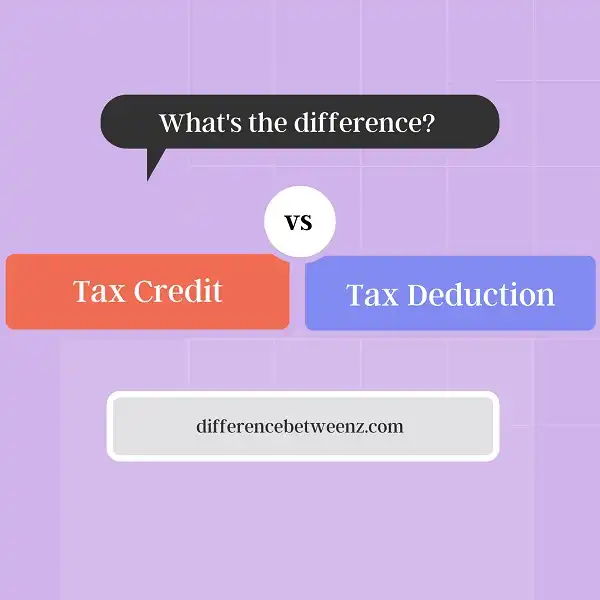When it comes to your taxes, there are two main ways to reduce how much you owe: tax deductions and tax credits. Both have their own benefits, but understanding the difference between the two is key to making sure you’re taking advantage of all the savings you can. In this post, we’ll break it all down for you. So read on and learn about the difference between tax credits and tax deductions!
What is Tax Credit?
Tax credit refers to any form of financial assistance provided by the government to support or stimulate certain types of economic activity. This might include tax breaks for businesses that expand their operations or hire additional employees, or it might be a direct cash payment to individuals who are struggling financially. Tax credit programs can be used for a variety of purposes, including encouraging investment in new technologies, supporting local communities, and promoting educational attainment. Ultimately, the goal of tax credits is to enhance economic well-being by encouraging activities that will improve overall productivity and prosperity.
What is Tax Deduction?
A tax deduction is a term that is commonly used in the field of finance to describe any deductions that can be made from an individual or organization’s taxable income. Tax-deductible expenses may include things like charitable donations, business expenses, mortgages, and medical bills. There are also many tax deductions specific to different industries and professions that individuals may qualify for based on their work or personal circumstances. The purpose of these tax deductions is to help individuals and organizations lower their taxable income, allowing them to keep more of their money for themselves. Whether you are an individual looking to save on your taxes or a business owner trying to maximize your bottom line, being aware of the available tax deductions and taking advantage of them when can help you achieve your financial goals.
Difference between Tax Credit and Tax Deduction
Taxpayers often confuse tax credits with tax deductions. Both can lower the amount of taxes you owe, but they work in different ways. A tax deduction lowers your taxable income, while a tax credit lowers your tax bill dollar for dollar. In other words, a $1,000 deduction saves you $250 if you’re in the 25% tax bracket. But a $1,000 credit reduces your tax bill by $1,000, no matter what your marginal rate is. Tax credits are generally more valuable than deductions because they reduce your tax bill dollar for dollar, rather than just lowering your taxable income. However, each type of credit or deduction has its own rules and restrictions, so it’s important to understand how each one works before claiming it on your taxes. Credits and deductions are both useful tools to lower your tax bill, but it’s important to know the difference between the two so you can maximize your savings.
Conclusion
The main difference between a tax credit and a tax deduction is that a tax credit reduces your taxable income, while a tax deduction lowers your taxable amount. For example, if you have a $1,000 tax credit, that means you only have to pay taxes on $9,000 of your income instead of $10,000. A tax deduction would reduce the amount of money you owe in taxes by $1,000. It’s important to understand the difference when filing your taxes because it could mean saving hundreds or even thousands of dollars.


